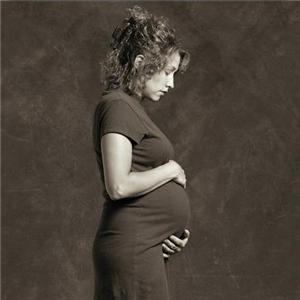Pregorexia: A Growing Danger Among Expectant Mothers
 Many expectant mothers worry about excessive weight gain which could lead to a number of health problems such as gestational diabetes in the mother and early diabetes in the child. A growing percentage of pregnant women with these worries cope with weight gain through disordered eating. Pregorexia, the moniker for this disorder, affects an increasing number of pregnant women trying to maintain their post-pregnancy physique.
Many expectant mothers worry about excessive weight gain which could lead to a number of health problems such as gestational diabetes in the mother and early diabetes in the child. A growing percentage of pregnant women with these worries cope with weight gain through disordered eating. Pregorexia, the moniker for this disorder, affects an increasing number of pregnant women trying to maintain their post-pregnancy physique.
Pregorexia occurs in women with established eating disorders, as well as women with otherwise healthy eating and exercise habits. Doctors recommend a weight gain of 25-35 pounds during pregnancy to support both the mother and the growing child. For women with eating disorders, this information causes extreme fear by introducing another challenge to unhealthy weight maintenance or it causes extreme relief by signaling a nine-month grace period from a gripping disorder. Women with healthy eating and exercise habits may develop an eating disorder associated with their pregnancy and the struggles of losing post-partum weight. Restricted eating and over-exercising, both extremely dangerous for the health of the mother and the baby, are two of the most common forms of pregorexia.
Dangers of Restricted Eating and Over-Exercising while Pregnant
Restricted Eating
Doctors recommend a weight gain of 25-35 pounds because an unborn child relies on his mother for nutrients and sustenance. By restricting their eating, mothers inadvertently restrict their developing child’s eating as well, which causes low birth weight and a host of other serious health problems down the road such as:
- ADD
- Anemia
- Rickets
- Heart Disease
- Depression
- Lower IQ
Over-Exercising
Many doctors advise their pregnant patients to exercise, but not too much. This ambiguous advice leads to confusion and manipulation among women trying to maintain their pre-pregnancy figures. Too much exercise puts stress on the mother’s body and endangers the child all the same as restrictive eating.
Women with disordered eating strive to hide their eating disorder from their doctors in order to cope with the accompanying shame and guilt. As obstetricians often are not trained to look for disordered eating in their patients, these dangers are misunderstood or misdiagnosed if the patient does not disclose this information. Doctors, therapists, and expectant mothers all need to work together to ensure the safety of a pregorexic mother and her child.
 Eating Disorder Self Test. Take the EAT-26 self test to see if you might have eating disorder symptoms that might require professional evaluation. All answers are confidential.
Eating Disorder Self Test. Take the EAT-26 self test to see if you might have eating disorder symptoms that might require professional evaluation. All answers are confidential.